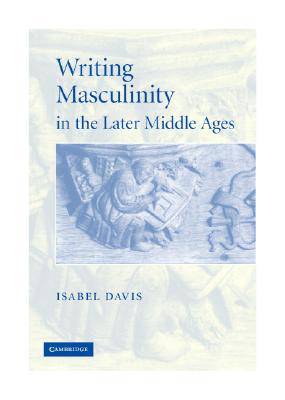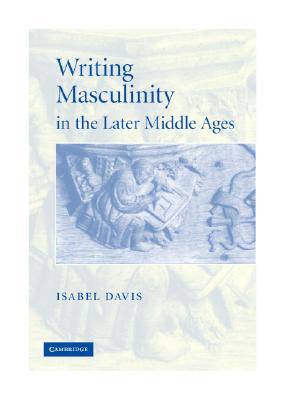
Bedankt voor het vertrouwen het afgelopen jaar! Om jou te bedanken bieden we GRATIS verzending (in België) aan op alles gedurende de hele maand januari.
- Afhalen na 1 uur in een winkel met voorraad
- In januari gratis thuislevering in België
- Ruim aanbod met 7 miljoen producten
Bedankt voor het vertrouwen het afgelopen jaar! Om jou te bedanken bieden we GRATIS verzending (in België) aan op alles gedurende de hele maand januari.
- Afhalen na 1 uur in een winkel met voorraad
- In januari gratis thuislevering in België
- Ruim aanbod met 7 miljoen producten
Zoeken
Omschrijving
Medieval discourses of masculinity and male sexuality were closely linked to the idea and representation of work as a male responsibility. Isabel Davis identifies a discourse of masculine selfhood which is preoccupied with the ethics of labour and domestic living. She analyses how five major London writers of the late fourteenth and early fifteenth centuries constructed the male self: William Langland, Thomas Usk, John Gower, Geoffrey Chaucer and Thomas Hoccleve. These literary texts, while they have often been considered for what they say about the feminine role and identity, have rarely been thought of as evidence for masculinity; this study seeks to redress that imbalance. Looking again at the texts themselves, and their cultural contexts, Davis presents a genuinely fresh perspective on ideas about gender, labour and domestic life in medieval Britain.
Specificaties
Betrokkenen
- Auteur(s):
- Uitgeverij:
Inhoud
- Aantal bladzijden:
- 240
- Taal:
- Engels
- Reeks:
- Reeksnummer:
- nr. 62
Eigenschappen
- Productcode (EAN):
- 9780521866378
- Verschijningsdatum:
- 22/02/2007
- Uitvoering:
- Hardcover
- Formaat:
- Genaaid
- Afmetingen:
- 165 mm x 232 mm
- Gewicht:
- 512 g

Alleen bij Standaard Boekhandel
+ 345 punten op je klantenkaart van Standaard Boekhandel
Beoordelingen
We publiceren alleen reviews die voldoen aan de voorwaarden voor reviews. Bekijk onze voorwaarden voor reviews.









